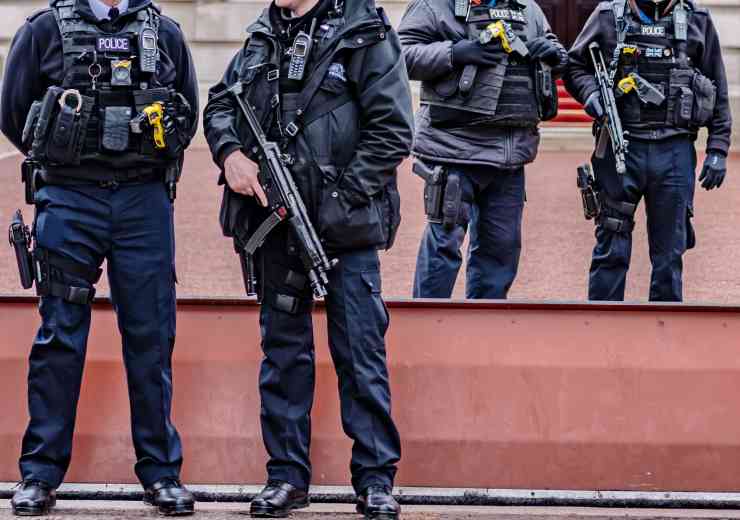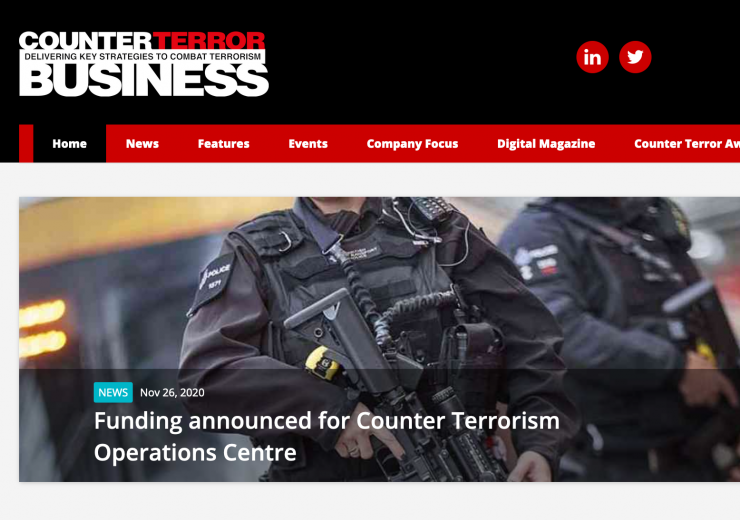The financial payback of security measures
 News that seven suspects have been charged with terrorism related charges in Birmingham should wake us all up to the very real possibility of a mass casualty attack on one of our cities. Whilst we are all aware that you are innocent until proven guilty, the charges include preparing for an act of terrorism, including travelling to Pakistan for training in terrorism, making a martyrdom video and planning a bombing campaign.
News that seven suspects have been charged with terrorism related charges in Birmingham should wake us all up to the very real possibility of a mass casualty attack on one of our cities. Whilst we are all aware that you are innocent until proven guilty, the charges include preparing for an act of terrorism, including travelling to Pakistan for training in terrorism, making a martyrdom video and planning a bombing campaign.
The suspects stand accused of ‘being concerned in constructing’ a home-made explosive device for terrorist acts and stating an intention to be a suicide bomber. Yet, it is amazing to note the lack of reporting of these charges. The BBC had it 5th from the top of their headlines and it was even topped by the hot topic of orphaned baby red squirrels.
A big issue
The fantastic work of the police and security services, saving hundreds of innocents from being murdered in the most horrendous fashion does not make big news apparently. Can you imagine if they slipped through the net, if there was an intelligence failure? Those same journalists and every other commentator, many of whom should know better would be up there calling for heads to roll.
Cressida Dick, the new assistant commissioner and chair of the Association of Chief Police Officers’ Terrorism & Allied Matters (ACPO-TAM) business area, who is responsible for co-ordinating national counter terrorism and security policy would be waiting for the dreaded call asking the inevitable question, whose fault was it?
Whether you want to call it terrorism fatigue or just the fact that we are a resilient nation, it really is quite amazing that we are all just getting on with life as if nothing will ever happen. Have a look around the news websites and try to find mention of the terrorist attacks happening more and more regularly in Northern Ireland. You will probably have to go to the N.I. part of the BBC website as it’s not deemed newsworthy for the rest of the UK to know that people are committing acts of terrorism on our own land.
Whether attacks are Al Qaeda (AQ) inspired from trained terrorists, the increasingly active Dissident Irish republicans or indeed the rest of the society who want to make a splash and commit mass murder such as Anders Breivik in Norway, the result is much the same. We will have to face some form of terrorism for all our working lives. The tactics will change but someone somewhere will want to terrorise society. In fact the lessons we need to learn from attackers such as Breivik (who used AQ tactics of multiple and co-ordinated attacks, bombs and bullets) is that we can reduce our vulnerabilities. The same good practices work to reduce your vulnerabilities whatever the motives of the attacker.
Individual steps
To be quite honest there is nothing you as an individual can do to reduce the threat of terrorism, that is the role of the Police and security services, but you can do something to reduce your vulnerabilities as a person or business. In fact I would go so far as to say that you have a responsibility to protect yourself, your family, your business, your staff and your customers.
There is no doubt that the threat of terrorism is evolving and increasing. An attack not only on, but near your operations could result in human casualties, property damage, business interruption, legal liability issues and long term damage to brand and reputation.
Terrorist attacks must now be viewed as a foreseeable risk. In today’s litigious society, businesses need to ensure corporate governance and duty of care responsibilities are integral to their crisis management strategy.
The challenge comes from the fact that security is viewed by many in the business community as having a negative impact on the bottom line.
Simple measures
Time and again I hear the difficulties that security manager’s face in persuading their boards of the need to upgrade their security. The truth of the matter is that many of the changes to security in an organisation are free or very nearly free. Most are more about the way we do things and simply require an understanding of why and what we need to do to protect ourselves.
For instance, ensuring that you have good housekeeping policy on your premises will help to prevent an opportunity for an attacker to hide a device. Encouraging a security culture within your organisation will help all staff understand the need to take security seriously.
These are simple and effective changes to procedures and behaviour and cost nothing. Small changes can make a big difference. Just giving your employee the encouragement, responsibility and authority to challenge strangers makes a massive difference. Ensuring that they are aware of the dangers of allowing tailgating in your building can prevent strangers gaining unrestricted access to your building. This may prevent your commercially sensitive secrets from being leaked to a competitor or worse stop a bomb being placed inside your building.
Value for money
For many years we have been grappling with the issue of getting security improvements regarded as good value for money. This is even more important than ever at a time when budgets are being slashed across the board. Now perhaps there is an answer. Perhaps the insurance industry has come up with a way to solve this conundrum. Reductions in insurance premiums reflecting good security practice just could be the Holy Grail we have all been looking for.
For many years and in particular following the Dissident Irish Republican terrorist attacks in the 1990s in London and elsewhere in England, there was a difficulty in insuring against a terrorist attack. Insurers depended on reinsurers for financial protection should very large claims occur and, accordingly, both insurers and reinsurers decided they could no longer provide terrorism cover using traditional methods. The losses had the potential to be massive. Pool Reinsurance Company Limited, also know as Pool Re, was formed. This was a joint initiative between the government and the Insurance industry to offer terrorism Insurance cover. But Pool Re has limitations. For instance when taking up Pool Re insurance, there is a requirement to insure all of your assets. Well clearly, where a business has a wide portfolio of assets some will need terrorism Insurance but some of those assets will not.
A small asset in the middle of Dartmoor is clearly not at the same risk as a city centre HQ. Businesses with a spread of assets really need a more intelligent and considered means of understanding their risk portfolio.
Change for the better
The good news is that the insurance industry is now stepping up to the mark. Certain insurance companies will conduct an innovative and intelligent review of an individual business’ assets. They measure and analyse the risk faced by that business. Using this method there are some great examples of businesses actually reducing their premiums.
Often the insurer offers the opportunity to provide a service which actually reviews the sites and then provides specific advice on the worst case scenario. Using experts in terrorism and bomb blast engineers they can give detailed advice on the probable maximum losses (PML) that would be suffered in a worst case scenario. This is in almost every case lower than the sum previously used for insurance purposes. It also offers the opportunity to make changes which reduce that PML. For example if by improving the security at the gate, or increasing the strand-off for a vehicle bomb you can reduce the PML by £10 million you also reduce the amount of insurance cover you need. Not only for year one but for the following years. This is potentially a massive saving on insurance premiums. Obviously the security improvements then pay for themselves.
A reward for security
What the government, the police and anyone with any common sense wants, is to create a virtuous circle where those who take security seriously and frequently review and improve their security and business continuity plans are rewarded with lower premiums on their insurance. At present the big savings will be for the larger company that buys terrorism insurance. Many of these businesses would benefit from an intelligent review of their assets. The savings have the potential to be massive, and they will allow that business to understand better what they are willing to tolerate and give them funds to treat their higher risk assets.
In the same way insurance companies give reductions for having good locks on doors or being part of a Neighbourhood watch scheme, businesses would be rewarded for having good security by reduced premiums. This surely is the way to reduce the vulnerability not only of the individual company but also increase the security of UK PLC making us a much better protected and resilient nation.
By taking out these policies, security managers would be able to show a quantifiable and measurable return on the investment of good security and this has to be a massive step forward.
About the author
Chris Phillips is the former head of the National Counter Terrorism Security Office (NaCTSO). He has recently become the managing director of the International Protect and Prepare Security Office.
This consultancy helps countries and business to understand the implications of terrorism on them, both as a seller of goods and services and also as potential victims of a terrorist attack or other major Incident.

















